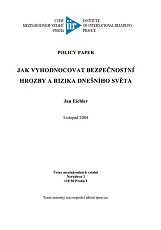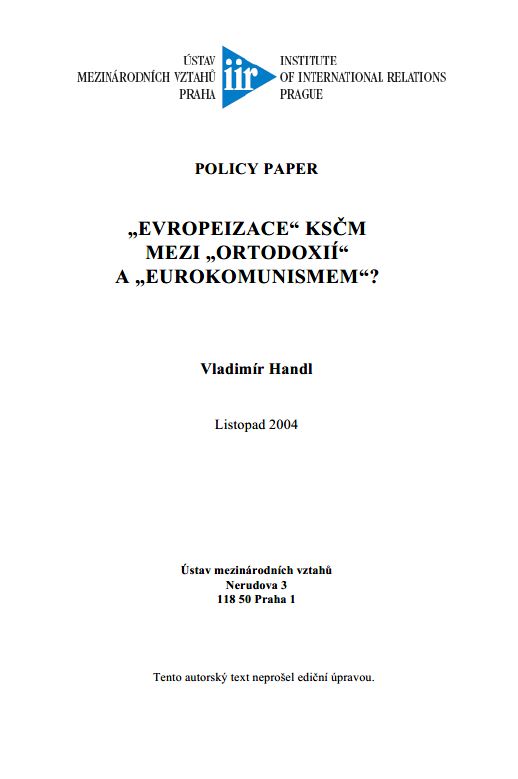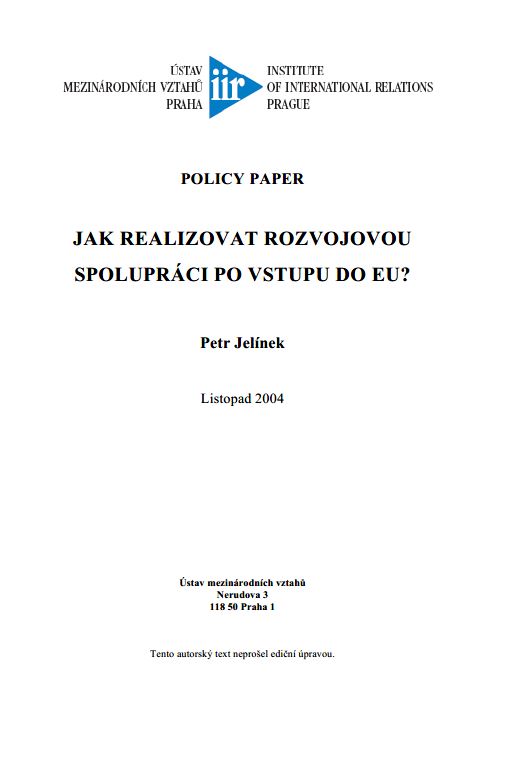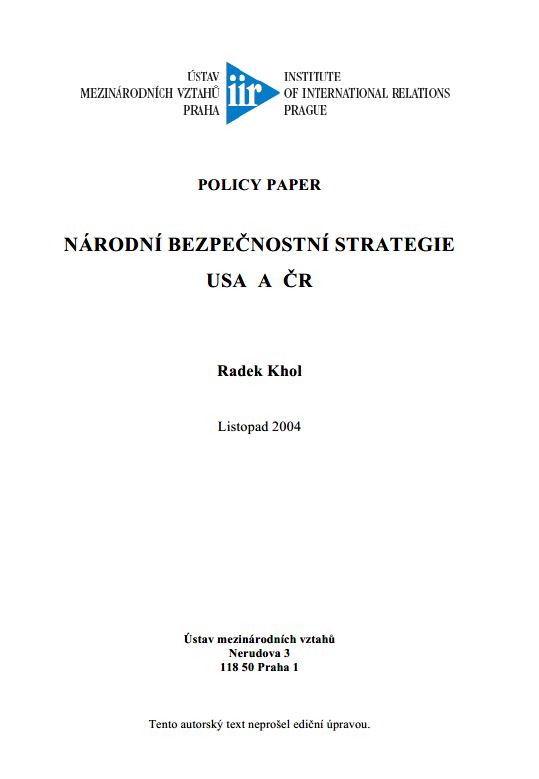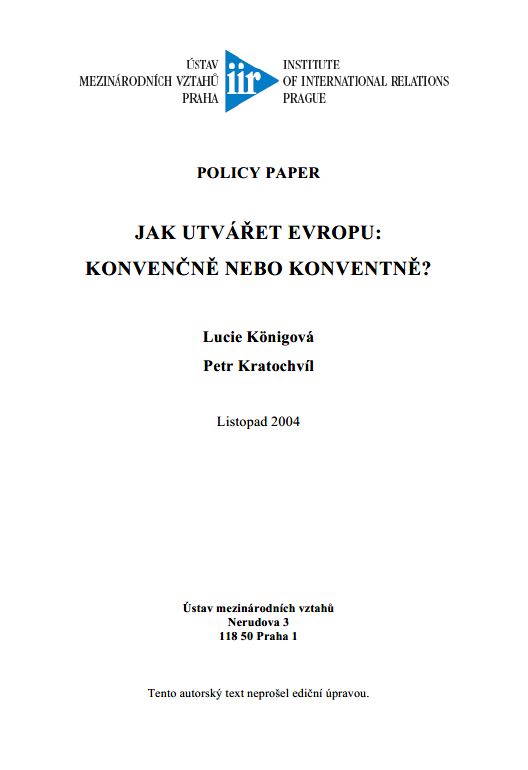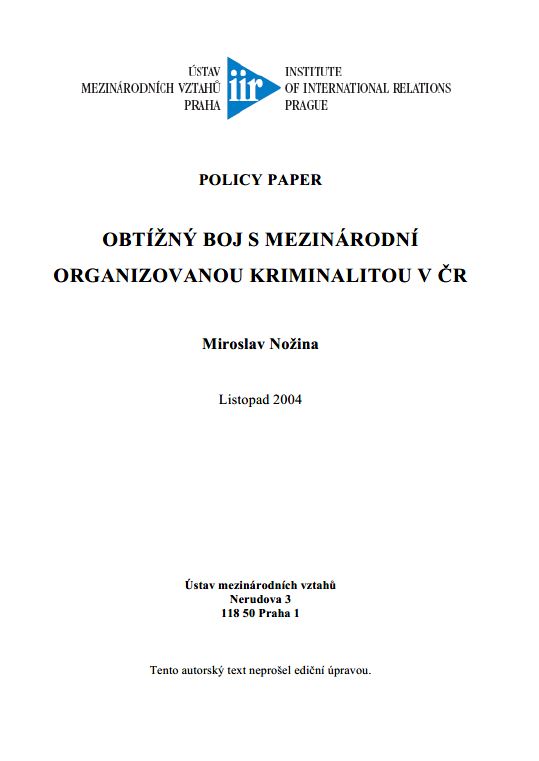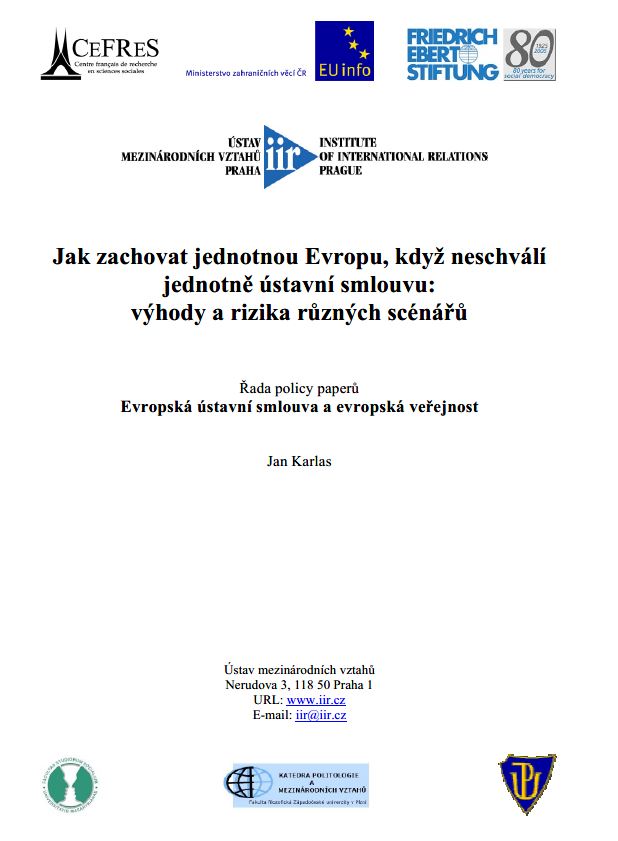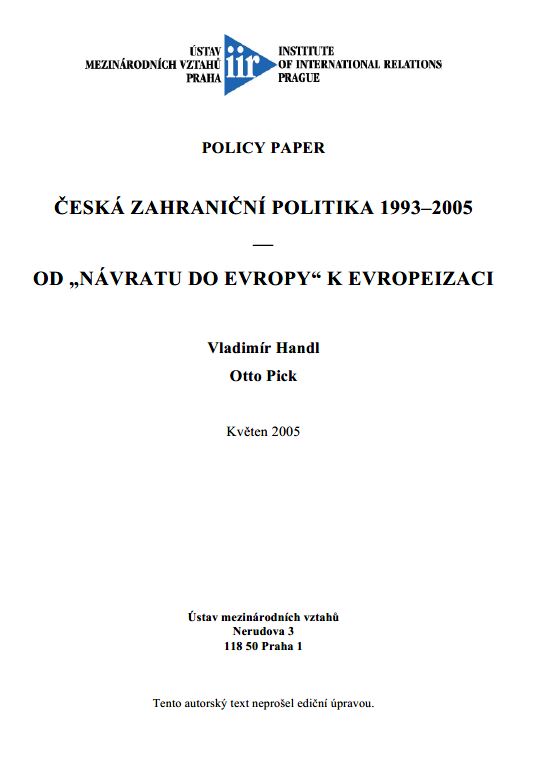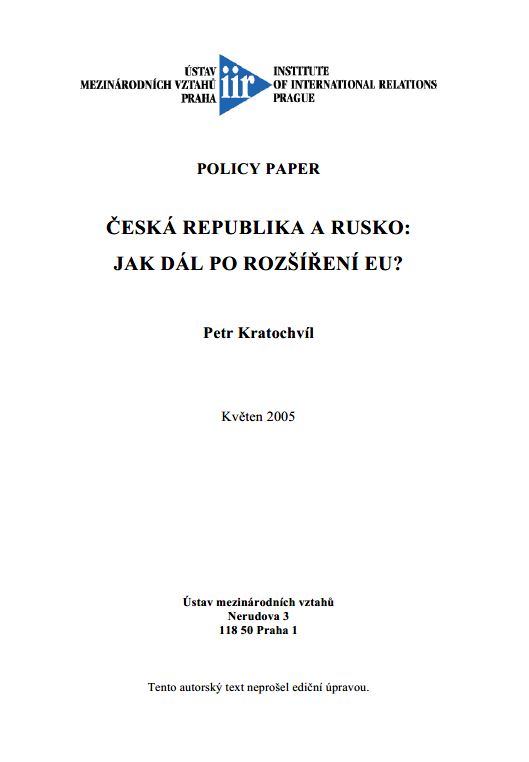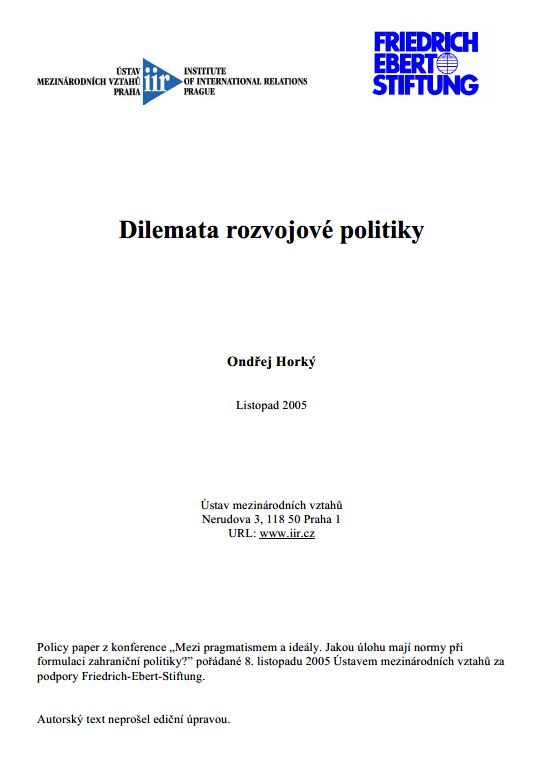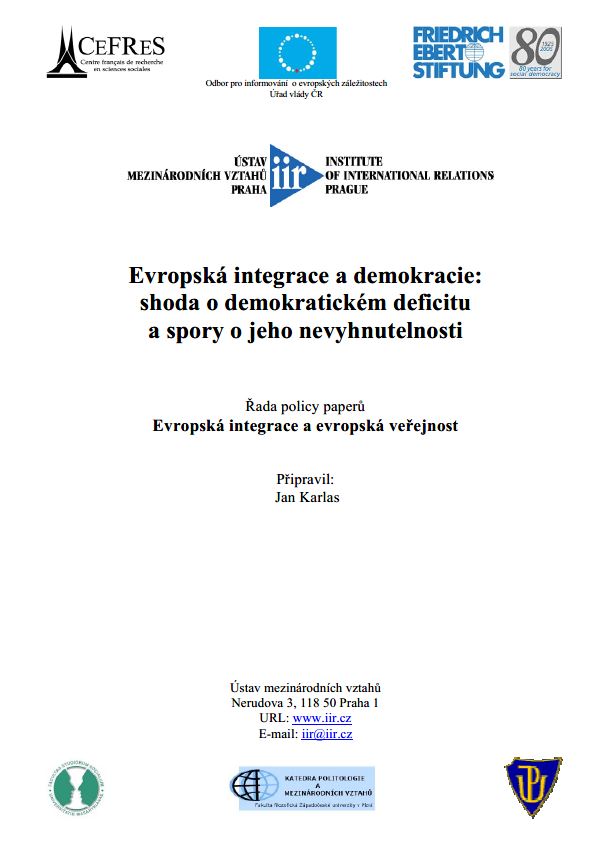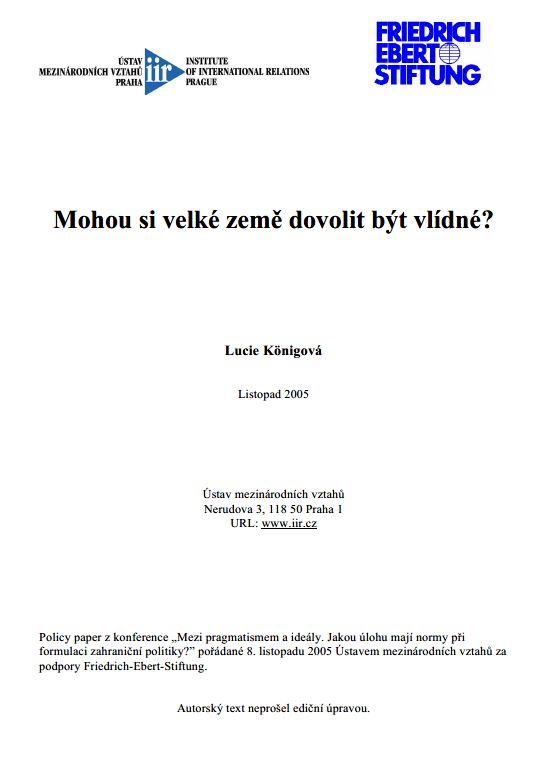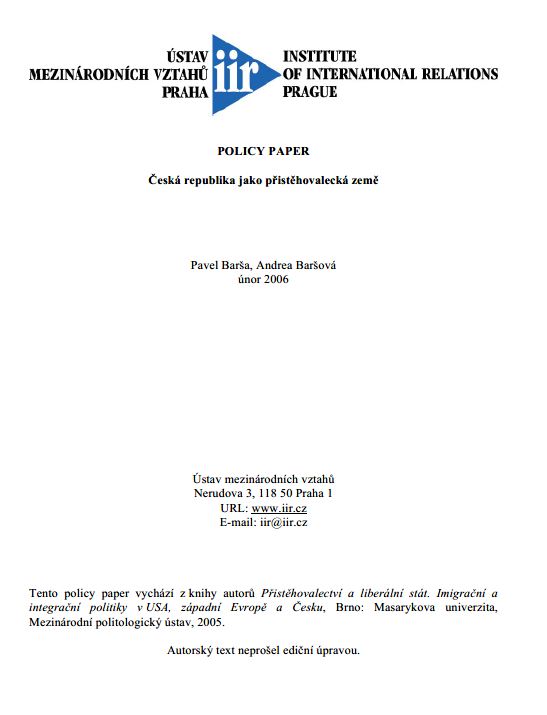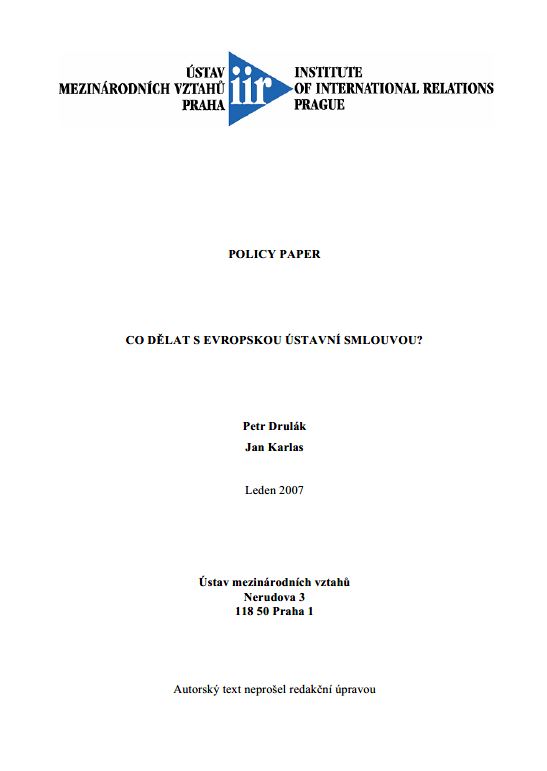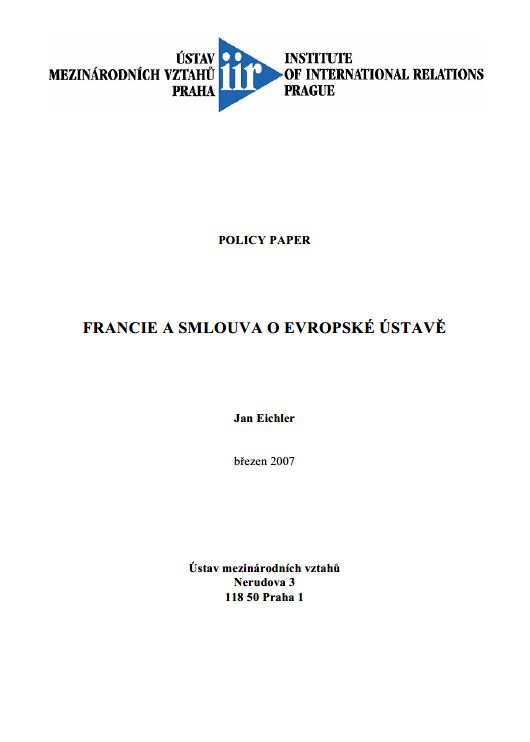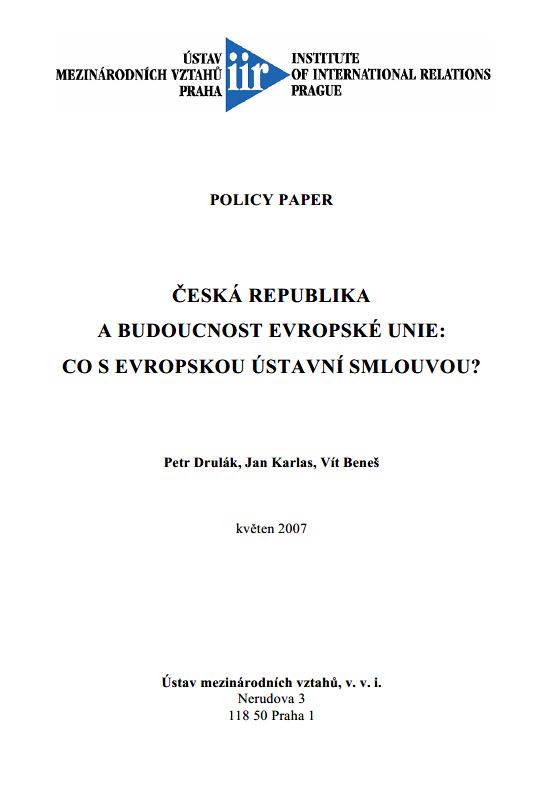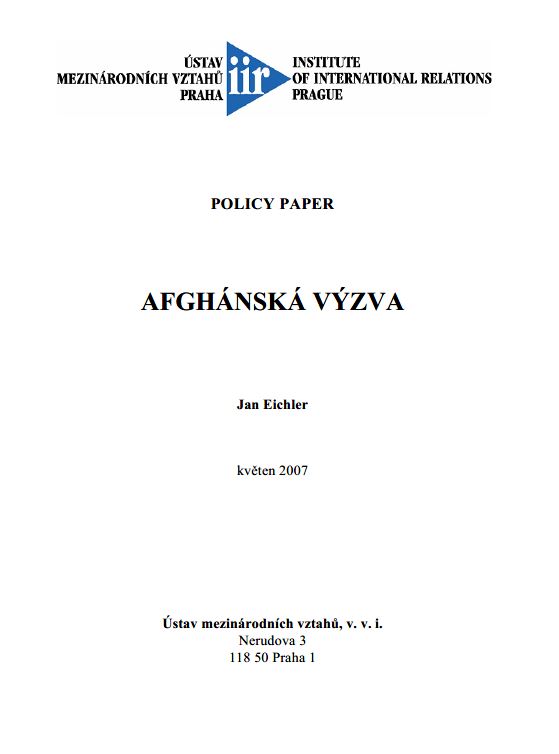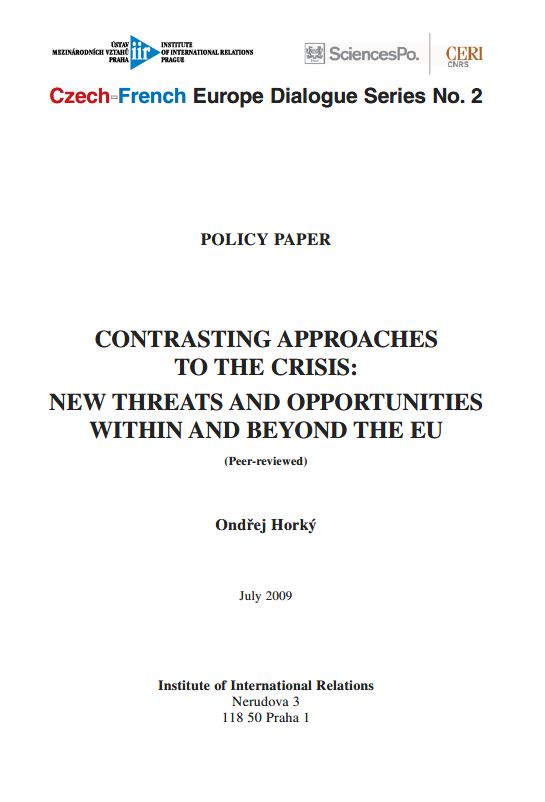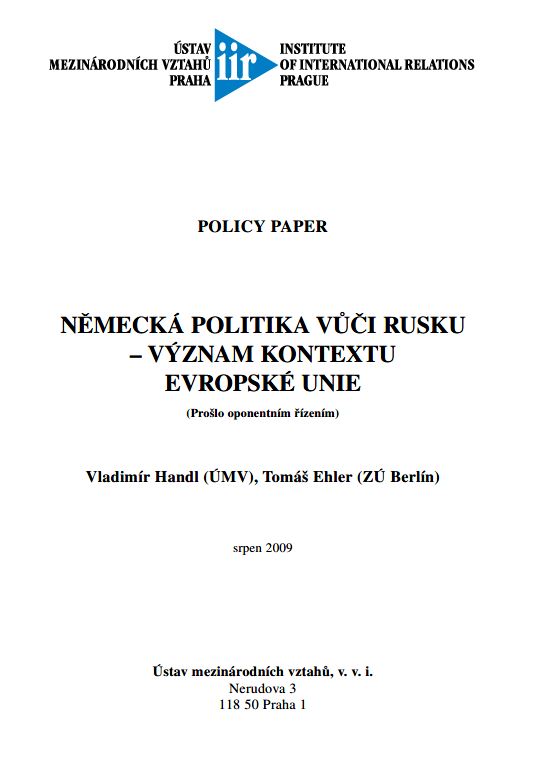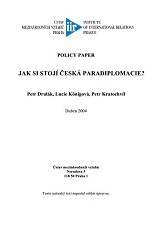
How do you like Czech Paradiplomacy?
Jak si stojí Česká Paradiplomacie?
Keywords: Paradiplomacy; international relations; regionalization; EU; Czech Republic;
Mezinárodní vztahy bývají často ztotožňovány s diplomacií. Zapomíná se přitom na to, že vedle zahraničních aktivit států jsou důležitou součástí mezinárodních vztahů také zahraniční aktivity měst a regionů, označované jako paradiplomacie. Domácí i zahraniční zkušenosti ukazují, že paradiplomacie je nutným důsledkem procesu regionalizace, který vede k přenášení kompetencí ústředních institucí států na města a regiony. Paradiplomacie přináší svým účastníkům řadu výhod, účastníci si mohou například vyměňovat zkušenosti s řešením regionálních a komunálních problémů, mohou získávat finanční prostředky od EU a mohou flexibilně reagovat na výzvy mezinárodního prostředí. Paradiplomacie však také klade na své tvůrce určité nároky. Pokud mají být úspěšní, tak musí být schopni realisticky definovat své cíle a k jejich prosazování najít nejvhodnější partnery, ať už se jedná o ústřední instituce státu, podniky nevládní organizace či mezinárodní partnery. Jak si v tom stojí česká paradiplomacie?
More...
